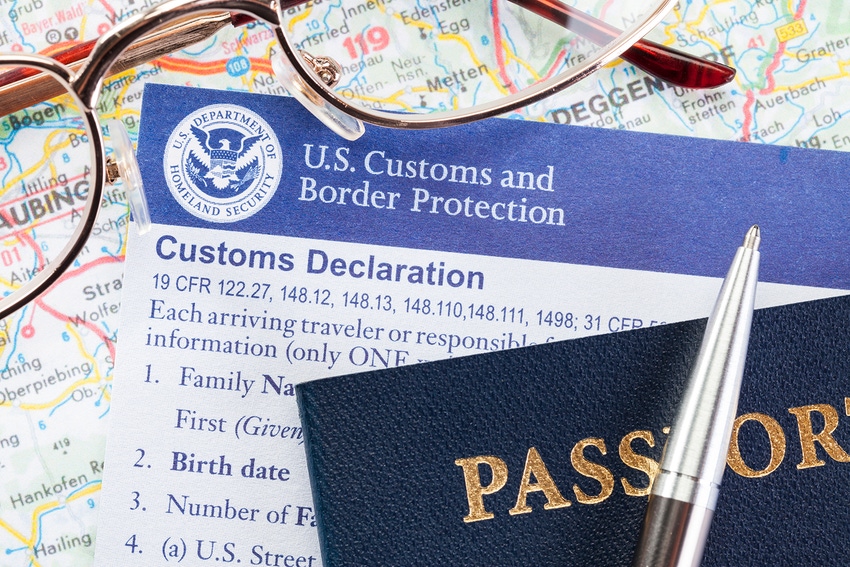Travelers need to beware, could be carrying African swine fever
APHIS’ new traveler website provides updated information about potentially harmful pests and diseases that can hitchhike on food or other agricultural products.
March 20, 2019

The USDA is now warning international travelers about the dangers of African swine fever, a disease they could unknowlingly bring back into the United States on their clothes, shoes or hands.
While ASF does not affect human health and cannot be transmitted from pigs to humans, the recent spread of the disease to new countries in Asia and Europe has triggered a series of actions by USDA, State Agriculture Departments and the pork industry to bolster protections against ASF in the United States and keep ASF out of North America.
“ASF has never been detected in the United States,†says Greg Ibach, USDA Under Secretary for Marketing and Regulatory Programs, “but an outbreak here would not only affect the pork industry, but would have major impacts on trade and raise food prices for consumers. We are asking international travelers to help prevent the spread of ASF to the United States by understanding what products can be brought back into the United States, and declaring any agricultural items in their baggage.â€
APHIS’ new traveler website provides updated information about potentially harmful pests and diseases that can hitchhike on food or other agricultural products. When returning to the U.S., travelers are reminded to declare food items and animal products in their luggage. Failure to declare items may result in serious penalties.
“USDA and U.S. Customs and Border Protection recognize the crucial work of detector dog teams at U.S. ports of entry,†says Ibach, “While travelers’ declarations of any food products brought with them to the United States is a critical step to protecting U.S. agriculture, the dogs and secondary agricultural inspections provide another line of defense to keep ASF out of the country.â€
Travelers will also see some changes at airports as USDA works with CBP to increase screenings of passenger baggage. This includes training and adding 60 additional beagle teams for a total of 179 teams working at key U.S. commercial, sea and air ports and ensuring travelers who pose an ASF risk receive secondary agricultural inspection. USDA is also coordinating with CBP to expand arrival screenings, including checking cargo for illegal pork and pork products.
Anyone who visits a farm in an ASF-affected country should take specific precautions before returning to the United States. Follow the farm’s biosecurity protocols and wear site specific footwear and coveralls or clothing. Thoroughly clean and disinfect or dispose of clothes and footwear worn on the farm before returning, and declare the farm visit to CBP when re-entering the United States. Travelers should not visit farms or any other locations with pigs – including livestock markets, zoos, circuses and pet stores with pot-bellied pigs for at least five days after returning.
More information on ASF, partner resources and additional resources for travelers are available on the APHIS ASF webpage.
Source: USDA APHIS, who is solely responsible for the information provided, and wholly owns the information. Informa Business Media and all its subsidiaries are not responsible for any of the content contained in this information asset.
About the Author(s)
You May Also Like



